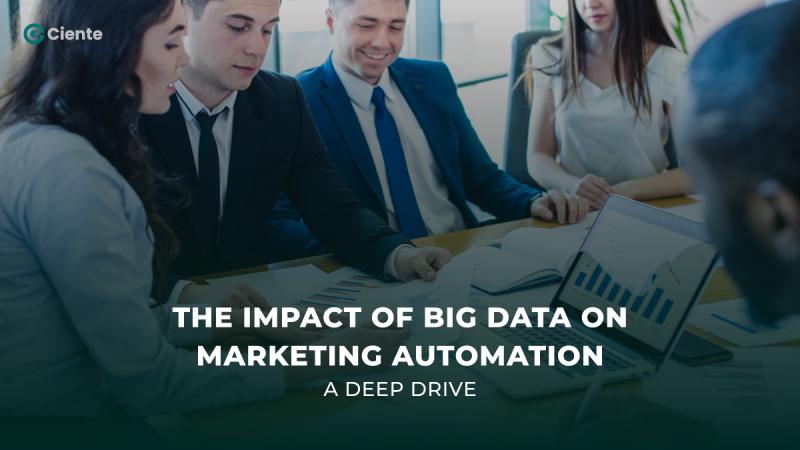The Impact of Big Data on Marketing Automation: A Deep Dive

In today's digital age, businesses are inundated
with vast amounts of data. This data, often referred to as "big
data," presents both challenges and opportunities for marketers. One area
where big data has had a profound impact is marketing automation. By leveraging
the power of big data, marketers can gain valuable insights into customer
behavior, personalize their campaigns, and ultimately drive better results.
Understanding the Intersection of Big Data and Marketing
Automation
Marketing automation refers to the use of software to automate repetitive marketing tasks, such as email campaigns, social media engagement, and lead nurturing. When combined with big data, marketing automation becomes a powerful tool for data-driven marketing.
Marketing technology (martech) plays a crucial role in enabling the integration of big data and marketing automation. Martech platforms provide the tools and infrastructure necessary to collect, store, analyze, and leverage large datasets.
Key Benefits of Big Data in Marketing Automation
- Improved
Customer Segmentation: Big data allows marketers to segment their
audience into more granular groups based on a variety of factors,
including demographics, behavior, and preferences. This enables them to
create highly targeted campaigns that resonate with specific customer segments.
- Personalized
Marketing: By analyzing customer data, marketers can personalize their
marketing messages and offers to individual customers. This level of
personalization can significantly improve customer engagement and
conversion rates.
- Predictive
Analytics: Big data can be used to build predictive models that
forecast customer behavior. This allows marketers to identify potential
customers, predict churn, and optimize their marketing efforts
accordingly.
- Real-time
Insights: Big data can be analyzed in real-time, providing marketers
with up-to-date insights into customer behavior and market trends. This
enables them to make data-driven decisions and respond quickly to changing
conditions.
- Enhanced
Campaign Optimization: By tracking the performance of marketing
campaigns and analyzing customer data, marketers can continuously optimize
their strategies. This ensures that their efforts are aligned with their
overall business objectives.
How Big Data is Transforming Marketing Automation
- AI
and Machine Learning: Artificial intelligence (AI) and machine
learning (ML) are being increasingly used to analyze big data and automate
marketing tasks. AI-powered algorithms can identify patterns in customer
data, predict future behavior, and personalize marketing campaigns at
scale.
- Customer
Journey Mapping: Big data can be used to create detailed customer
journey maps, which visualize the steps customers take as they interact
with a brand. This helps marketers identify opportunities to improve the
customer experience and increase conversions.
- Data-Driven
Decision Making: Big data provides marketers with the evidence they
need to make informed decisions. By relying on data-driven insights,
marketers can reduce risk and improve the effectiveness of their
campaigns.
Challenges and Considerations
While the benefits of big data in marketing automation are
significant, there are also challenges to consider. These include:
- Data
Quality: Ensuring the accuracy and completeness of data is essential
for deriving meaningful insights.
- Data
Privacy: Businesses must comply with data privacy regulations and
protect customer data from unauthorized access.
- Data
Integration: Integrating data from multiple sources can be complex and
time-consuming.
- Skill
Shortage: There is a growing demand for professionals with the skills
to analyze and leverage big data.
Conclusion
Big data has revolutionized marketing automation by enabling
marketers to gain deeper insights into customer behavior, personalize their
campaigns, and drive better results. As technology continues to evolve, the
potential for big data to transform marketing will only grow. By embracing big
data and leveraging the power of martech, businesses can stay ahead of the
competition and achieve their marketing goals.
Comments